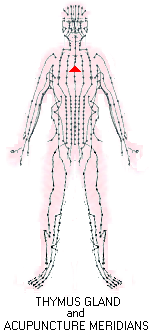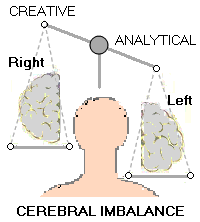|
■
Home ■ site map |
|
|
|
BLOG: June 2010 Anxious? Turn that music on...Long gone are days when life was slow and simple. Between dealing with all the complexities of the modern world, and daily interactions with scores of other people, it is easy to build anxiety. Especially for those with trapped negative emotions, making the handling of everyday's situations seem difficult or impossible. What can one do to escape anxiety? It can be as easy as learning to relax, except that it usually isn't easy for those who need it most. Among those who chose to skip the prescription drug "shortcut", one of the most popular alternative treatments is massage. And, chances are, just relaxing with music will do as well. Earlier this year, a small study by team of researchers from Seattle, WA (Effectiveness of therapeutic massage for generalized anxiety disorder: a randomized controlled trial, Sherman et al.), was expected to show some extra benefits of massage, as opposed to thermotherapy (wrapping the arms and legs in warm towels) and simple deep breathing. The researchers were in for a surprise: turned out, at the end of 12-week treatment period, all three relaxation techniques had about equal effectiveness, each halving the anxiety level. Reduction in anxiety was measured by the Hamilton Anxiety Rating Scale, reduction in symptoms, worry and anxiety-related disability. All three groups of study participants - 68 total, all diagnosed with generalized anxiety disorder (characterized by anxiety and uncontrollable worry lasting 6 months or longer) - underwent 10 one-hour sessions, laying in a room with quiet, relaxing music in the background. Despite the massage being specially designed to relax muscle tension, at the end of treatment it did not show more benefit in reliving anxiety than either thermotherapy, or deep breathing (all three groups received same brief instructions on deep breathing techniques, so it was not a factor that compensated for the absence of massage, or thermotherapy). Although study result is not as good for massage as expected, the efficacy in reducing anxiety is remarkable for all three techniques. For illustration, anti-anxiety prescription drugs only need to show better efficacy than placebo; a recent meta-study found that one of the most widely used broad-spectrum anti-anxiety drugs, diazepam (Valium), has 26% higher efficacy than placebo (Inada et al. 2003). Since massage and thermotherapy apparently added little benefit, just relaxing with music may be as effective as prescription drug in treating generalized anxiety disorder (one of the five most common types of anxiety disorder, which also include panic disorder, specific phobia, obsessive-compulsive disorder and post-traumatic stress disorder). And it not only comes without adverse side effects, addiction and/or withdrawal symptoms common to drugs, it also has lasting effect. The gains from 12-week treatment were still maintained (for all three groups) at the 6-month follow-up. The question is how much of this positive effect is due to the element of music, and would just relaxing with deep breathing and meditation produce similar benefit? Study authors speculate that it is relaxation itself that matters most; any relaxation technique should produce results, as long as it is effective, and practiced regularly. They do not offer explanation, or even a guess, as to why relatively brief periods of relaxation produce lasting reduction in one's anxiety level. One important component of it could be that the body falls behind with the effective degradation of stress hormones, due to frequent stressful exposures. Low level of nutrients needed to degrade these hormones would only make this worse. That could result in some residual level of stress hormones constantly present in the system. A series of relaxation sessions could result in lower production of these hormones not only during the sessions, but also hours or even days after. This break could enable the body to catch up, at least in part, with more efficient degradation and disposal of these hormones. If we break coping with everyday's situations on its three sequential steps: (1) forming perception of it as threatening, or not, (2) seeing it as controllable, or not, and (3) feeling and acting accordingly, production of stress hormones would follow negative assessment in the step 2 (stored toxic emotions often distort rational perception, distorting unthreatening or controllable situation into threatening and uncontrollable). Production of these hormones is tightly related to the formation of stress emotions - worry, anxiety, fear or aggression. Hence the presence of these hormones makes you pre-conditioned not only for constant worry and anxiety - sometimes without apparent reason - but also for over-reacting to stressful situations. Enter THYMUS There are other physiological factors that can also play significant role in one's anxiety level. An interesting approach, testing the effect of various external stimuli on the body by its effect on muscle and organ strength, has identified some expected, as well as unexpected sources of stress. While any muscle or organ can be tested, the book focuses on the deltoid muscle as indicator muscle, and thymus gland as affected organ.
Knowing how important it is for proper functioning of the immune system, makes these findings even more worth attention. In addition to stress, factors that have shown to weaken thymus - and lower body's energy level - include negative emotions and social interactions, denatured, highly processed foods, poor posture and scores of things in our physical environment - from auto exhaust, sound-waves (even those that we can't hear), electro-magnetic fields, insulation materials, household chemicals and fluorescent lighting to dark glasses, wristwatches, wigs/hairpieces, high-heel shoes, synthetic fabrics, disposable diapers, certain visual patterns, angry, unfriendly or "hang-dog" faces, and even facial features like sanpaku eyes. Considering that most of this research has taken place during the 1970s in Australia, not a few of Dr. Diamond's findings about adverse effects of specific environmental interactions on the body were ahead of time, and generally confirmed by latter research. As for the susceptibility to stress, one of important factors is how balanced are the two brain hemispheres. It determines how efficient is handling of stressful,
Most people are right-handers, with the left
hemisphere typically involved mainly with rational thinking and
verbal function and the right hemisphere with intuitive and creative/artistic
aspects (with left-handers
With the left cerebral hemisphere dominant, the rational brain component, whose main role is in indentifying challenge and initiating solution, is subdued. Typical reaction here is evading stress by avoiding to confront, or even acknowledge the challenge. Needless to say, sooner or latter, there is a price to pay for living in the fantasy world as well as. Efficient coping with life situations requires analytical and creative aspect, that is, balanced contribution from both hemispheres. How that can be achieved? According to Dr. Diamond - and his conclusions seem to be based on extensive empirical testing - a frequent use of the left hand by right-handers has balancing effect. Repeated heterolateral movements (like brisk walk with the arm moving forward together with the opposite leg) also correct cerebral imbalance, unlike repeated homolateral movements (e.g. arm and leg on the same side moving forward together), as well as repeated identical motions with both arms or both legs simultaneously (often done in exercising routines), both of which stimulate the left hemisphere. Listening to a telephone stimulates the side that receives the signal, some forms of poor posture, and so on. Cerebral imbalance also weakens the thymus, and strengthening the gland not only re-activates its function, but also helps correct for cerebral imbalance. How do you strengthen your thymus gland? As easy as thumping 10-12 times with your finger just below the top of breast bone, where the thymus is located, in front of the heart. Or by placing tip of your thong against the roof of the mouth, just above the upper front teeth - where it normally should rest. As mentioned, there is no theoretical explanation for most of the effects related to thymus, its link with the cerebral balance and overall body's energy flow, but the observation are based on extensive, meticulous real-life monitoring of body's own feedback, based on the general Applied Kinesiology, as well as the specific branch introduced by Dr. Diamond, Behavioral Kinesiology. By stimulating optimal energy flow within the body, strengthening the thymus also makes you more resilient to other sources of stress and weakening. Conversely, so do all the things opposite to those mentioned previously as being weakening the thymus: positive emotions, attitudes and social interactions, natural foods and materials, clean environment... And - should it come as a surprise - one of those elements in our environment that regularly strengthens the thymus is music. Most any music does it, but the notorious exception is rock; Dr. Diamond specifies some rock groups and singers, like Doors, The Band, Janis Joplin, Queen, America, Alice Cooper, Led Zeppelin, and others (it should be noted that not every rock song, or every song of the performers cited does lower body's energy level, nor those that do affect everyone the same). So the next time you can't shake off anxiety, find the time to take a little time-out, every now and then: close your eyes, breathe deeply and turn some music on - preferably, the right kind... YOUR BODY ┆ HEALTH RECIPE ┆ NUTRITION ┆ TOXINS ┆ SYMPTOMS |
 Why
thymus? It seems to be acting as a main controlling point for the
flow of energy through the mysterious, but definitely real
acupuncture meridians (acupuncture is routinely used instead of
conventional anesthesia for head and neck surgeries in China, even
those involving removal of the portions of the scull). This special
role makes thymus the first organ to
be affected by stress (Your Body Doesn't Lie, John Diamond
M.D.).
Why
thymus? It seems to be acting as a main controlling point for the
flow of energy through the mysterious, but definitely real
acupuncture meridians (acupuncture is routinely used instead of
conventional anesthesia for head and neck surgeries in China, even
those involving removal of the portions of the scull). This special
role makes thymus the first organ to
be affected by stress (Your Body Doesn't Lie, John Diamond
M.D.).  this separation is not so consistent).
Due to preferred use of the right hand, the left hemisphere is
dominant, focusing on the rational aspect. It, however, lacks the
intuitive, creative component often needed to find solutions to
challenging situations. As a result, stress and anxiety build up.
this separation is not so consistent).
Due to preferred use of the right hand, the left hemisphere is
dominant, focusing on the rational aspect. It, however, lacks the
intuitive, creative component often needed to find solutions to
challenging situations. As a result, stress and anxiety build up.